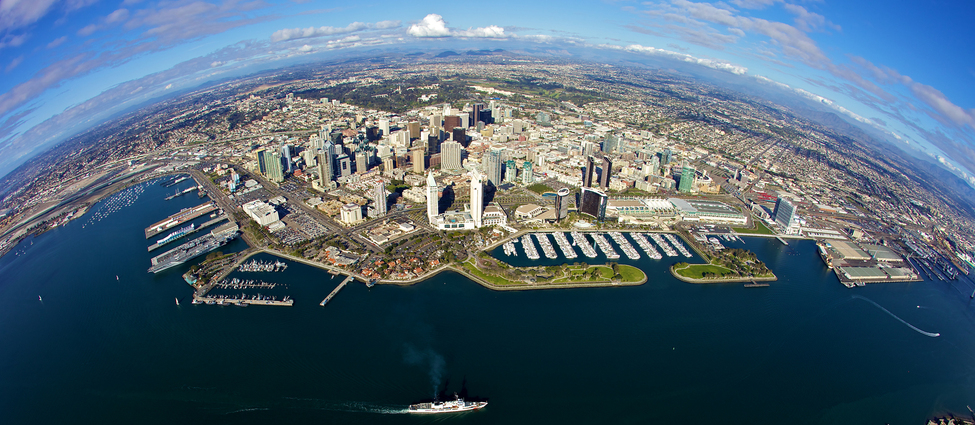

News
Trump's Trade Policy Impacts San Diego
By Nikia Clarke, executive director of WTC San Diego and Peter Cowhey, interim executive vice chancellor for Academic Affairs at UC San Diego
During his first week in office President Trump made many bold moves, including an executive order to withdraw from the Trans-Pacific Partnership (TPP), a call to renegotiate NAFTA, and a threat to impose a 20 percent border tax on Mexican imports to the United States following a very public spat with Mexican President Enrique Peña Nieto.
Trade matters for economies, big and small. For a border city on the edge of the Pacific, decisions on trade policy in Washington have outsize impacts on jobs, growth and opportunities for San Diegans.
Take TPP — an international trade deal originally negotiated between the U.S. and 11 other countries, covering 40 percent of global GDP.
Right now, the status quo makes it more expensive for U.S. companies to export to other countries than it is for foreign companies to sell goods and services here. TPP sought to level the playing field, especially for the small and midsize companies that make up more than 95 percent of San Diego’s business ecosystem.
It also was the first trade deal to write the rule book for the economy of the future. It protected the intellectual property of American innovators, which matters when you live in the third most patent-intensive region in the world.
Scientific research and development, the heartbeat of our world-renowned life sciences ecosystem and an industry dependent on patents, is five times more concentrated here than in the U.S. as a whole.
TPP eased restrictions on the movement of data and services across borders, which is important when you have a globally competitive cybersecurity cluster and revolutionary big data and genomics industries.
In San Diego, innovation is our livelihood, and TPP would have been a game changer for all those San Diego companies that export their knowledge across the globe. Killing TPP effectively cedes leadership on trade rules and norms to China, an outcome that is unlikely to be advantageous for U.S. companies and consumers.
And don’t forget that 97 percent of our goods exports — primarily high-value manufactured goods worth over $22 billion — are already sold in TPP markets, employing over 120,000 San Diegans. Most of those goods are exported to Mexico, sometimes crossing the border several times before they are fully assembled. This means that 40 percent of the content of imports from Mexico — the ones subject to a potential 20 percent tax — is American-made.
As we pivot from what could have been with TPP and look to NAFTA renegotiation, to building a wall, to a looming trade conflict with China, we should remember that trade has always been an American reality.
Here in San Diego, we marvel at the transformation over the past 50 years from a sleepy Navy town to a global city that develops life-changing technologies. We didn’t get here by building walls, and we won’t get ahead that way either.
This op-ed originally ran in the San Diego Union-Tribune: "Trump's trade moves impact San Diego economy"
For more more on TPP and San Diego, see WTCSD's economic impact report.